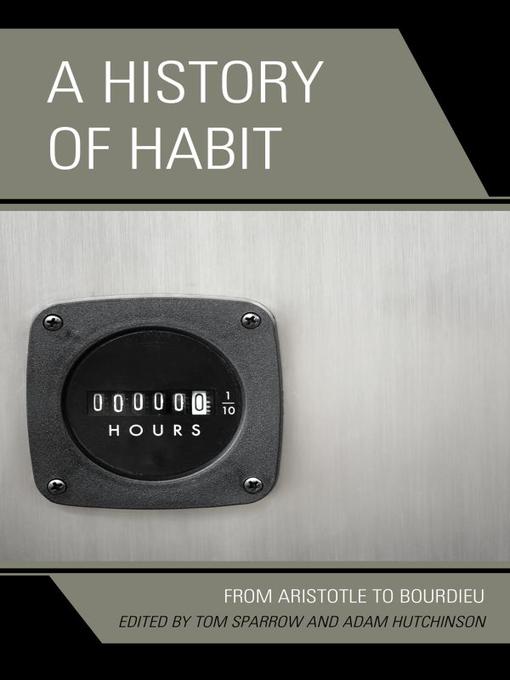-
Description
-
Creators
-
Details
Aristotle and the ancient Greeks recognized the importance of habit for the constitution of character, while readers of David Hume or American pragmatists like C.S. Peirce, William James, and John Dewey know that habit is a central component in the conceptual framework of many key figures in the history of philosophy. Less familiar are the disparate discussions of habit found in the Roman Stoics, Thomas Aquinas, Michel de Montaigne, René Descartes, Gilles Deleuze, French phenomenology, and contemporary Anglo-American philosophies of embodiment, race, and gender, among many others.
The essays gathered in this book demonstrate that the philosophy of habit is not confined to the work of just a handful of thinkers, but traverses the entire history of Western philosophy and continues to thrive in contemporary theory. A History of Habit: From Aristotle to Bourdieu is the first of its kind to document the richness and diversity of this history. It demonstrates the breadth, flexibility, and explanatory power of the concept of habit as well as its enduring significance. It makes the case for habit's perennial attraction for philosophers, psychologists, and sociologists.

- Tom Sparrow - Editor
- Adam Hutchinson - Editor
- Jeffrey Bell - Contributor
- Nick Crossley - Contributor
- William O. Stephens - Contributor
- Shannon Sullivan - Contributor
- David Leary - Contributor
- Margaret Watkins - Contributor
- Robert Miner - Contributor
- Thornton Lockwood - Contributor
- Terrance MacMullan - Contributor
- Peter Fosl - Contributor
- Dennis Des Chene - Contributor
- Clare Carlisle - Contributor
- Edward Casey - Contributor
OverDrive Read
- ISBN: 9780739181997
- Release date: May 28, 2013
EPUB ebook
- ISBN: 9780739181997
- File size: 1741 KB
- Release date: May 28, 2013
